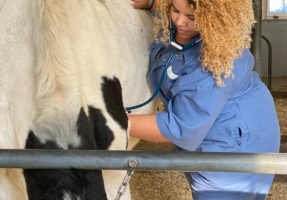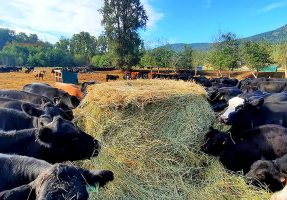An outbreak of bluetongue among bighorn sheep in the Grand Forks area has livestock producers on watch.
There have been 12 possible cases identified, though lab testing is still in progress. Several white-tailed deer in Washington have also contracted the disease.
The virus that causes the disease is spread by biting midges (also known as “no-see-ums”), which are only found in the southern Interior. There is no Bluetongue vaccine licensed in Canada, and no treatment.
Sheep are most susceptible, with a high mortality rate, but all ruminants are at risk. Most cases of the disease show no symptoms other than weight loss, milk loss and fertility losses. However, sheep may exhibit excessive salivation, panting, swollen tongue or ears and muzzle ulcers.
While the disease is a larger issue for sheep producers than cattle producers, BC Cattlemen’s Association general manager Kevin Boon has told local ranchers to be vigilant.
“This outbreak is earlier in the season than normal likely due to abnormally warm temperatures this summer,” says Boon. “The only control right now is basically insect control and most are doing what they can do to help themselves.”
Keeping animals inside when midges are most active may decrease transmission. Veterinarians recommend newer topical fly products such as Saber and Boss, which can minimize bites for up to four months.
Canadian Food Inspection Agency staff are aware of the outbreak, which is a reportable disease. CFIA is genotyping the outbreak to better understand it and clarify the risk to domestic livestock.
The disease does not pose a risk to human health.














 PNE auction stays online
PNE auction stays online